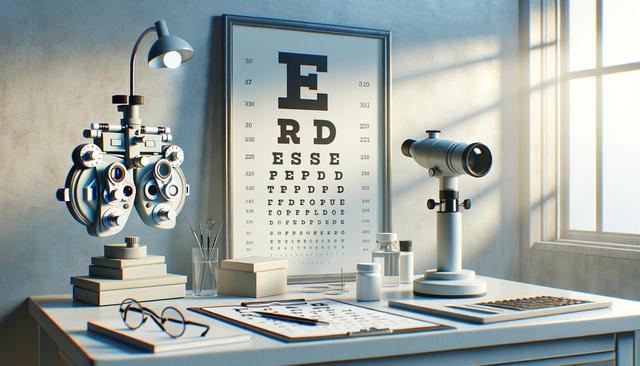Why Regular Vision Checkups Matter
Scheduling a periodic Vision Checkup is one of the most effective ways to preserve your long-term eyesight. Many eye conditions, such as glaucoma or macular degeneration, develop slowly and without obvious symptoms in their early stages. A routine Eye Test can uncover these issues before they impact your daily life. In addition to identifying illnesses, checkups help monitor visual acuity, ensuring your prescription lenses are up to date and your eyes are functioning at their best.
Skipping regular exams may result in unnoticed changes in vision or the progression of conditions that could have been managed more easily if caught early. Vision checkups are especially important for individuals with chronic conditions such as diabetes or high blood pressure, as these can affect Eye Health significantly. Staying proactive with your appointments can help prevent complications and maintain a high quality of life.
The Components of a Comprehensive Eye Exam
A full Optometry Exam involves more than just reading letters off a chart. It includes a series of tests designed to evaluate various aspects of your vision and eye function. These assessments provide a thorough overview of your Eye Health and are typically tailored to your age, medical history, and risk factors.
Common components of a comprehensive eye exam include:
- Visual acuity test – measures how clearly you see at different distances.
- Refraction test – determines your exact prescription for glasses or contact lenses.
- Eye muscle function test – checks for problems with eye movement or coordination.
- Pupil response test – examines how your pupils react to light.
- Slit-lamp examination – allows the doctor to inspect the front part of the eye in detail.
- Retinal examination – evaluates the back of the eye, including the retina and optic nerve.
Each of these tests contributes to a complete picture of your visual system, enabling early detection of potential problems that may not present obvious symptoms.
Maintaining Eye Health at Every Age
Eye Care needs vary depending on your age and life stage. Children, adults, and seniors all face different risks when it comes to their vision. For instance, children may experience undiagnosed vision problems that can affect learning and development, while adults might begin to notice signs of digital eye strain from prolonged screen use. Seniors are more susceptible to age-related diseases like cataracts and glaucoma.
Here’s a general guideline for eye exam frequency:
- Children: First exam at 6 months, again at 3 years, and before starting school.
- Adults (18–60): Every two years, or annually if you wear corrective lenses or have health conditions.
- Seniors (60+): Once a year, or more frequently as advised by an eye care professional.
Adjusting your Eye Care routine to fit your age can help you maintain strong vision throughout your life. Regular Eye Tests ensure that any changes are detected and addressed promptly, minimizing the risk of long-term damage.
The Role of Lifestyle in Vision Health
Your daily habits can greatly influence your Eye Health. From diet to screen time, many lifestyle factors either support or hinder your vision. Incorporating healthy routines can enhance the effectiveness of regular Vision Checkups and help prevent avoidable issues.
Here are some practical habits for maintaining healthy eyes:
- Eat a balanced diet rich in leafy greens, fish with omega-3s, and colorful fruits.
- Wear sunglasses to protect your eyes from harmful UV rays.
- Take breaks when using digital devices by following the 20-20-20 rule.
- Stay hydrated to support overall eye function.
- Get enough sleep to reduce eye strain and fatigue.
- Quit smoking, as it increases the risk of cataracts and macular degeneration.
While these habits don’t replace the need for an Optometry Exam, they complement professional care by keeping your eyes in good condition between appointments.
Choosing the Right Time and Provider
Finding the right time and provider for your Eye Test can make a significant difference in your overall experience. Ideally, schedule your exam when you’re not rushed and can dedicate time to the full evaluation process. Morning appointments can be beneficial if your eyes are less fatigued, especially if you spend long hours in front of screens.
When choosing an eye care provider, consider the following:
- Qualifications and certifications of the optometrist or ophthalmologist.
- Range of services offered during the exam.
- Availability of advanced diagnostic equipment.
- Positive feedback from current or past patients.
- Location and convenience of appointment times.
Regular visits to a trusted professional ensure that your Eye Health is monitored consistently. A reliable provider will help develop a personalized care plan, including recommendations for future Vision Checkups, lifestyle adjustments, and treatment if needed.
Conclusion: Prioritize Your Vision with Routine Eye Exams
Taking charge of your Eye Care means more than reacting to problems—it involves regular monitoring and making informed lifestyle choices. Routine Optometry Exams are crucial for detecting issues early, updating prescriptions, and protecting your long-term vision. Whether you’re managing a pre-existing condition or simply ensuring your next Eye Test is on schedule, consistent checkups support a lifetime of healthy sight. Don’t wait for symptoms to appear—make eye exams a regular part of your wellness routine.




Leave a Reply